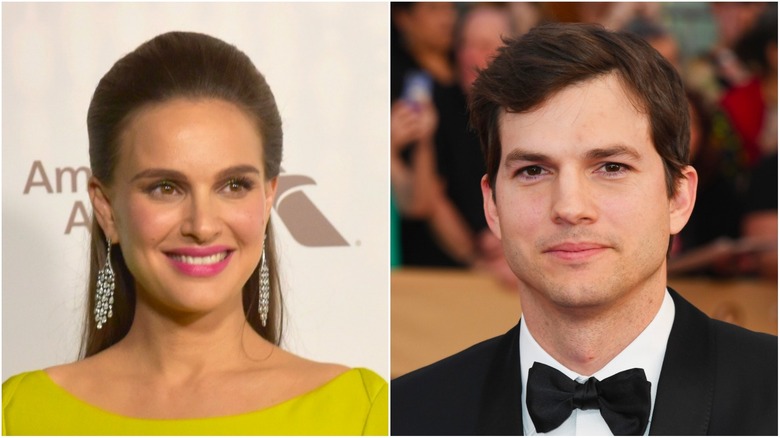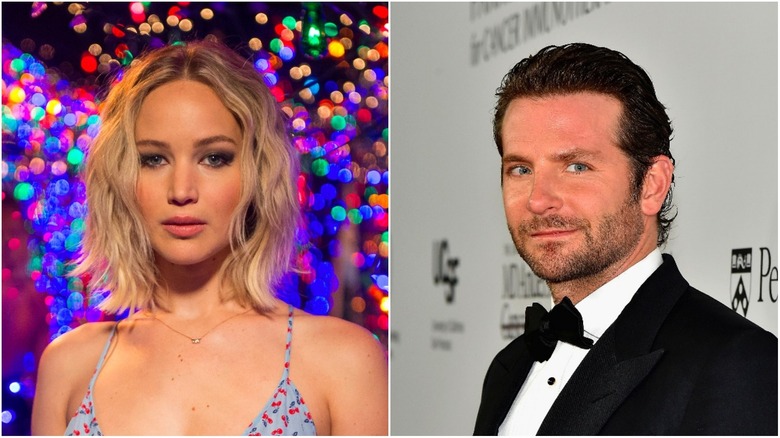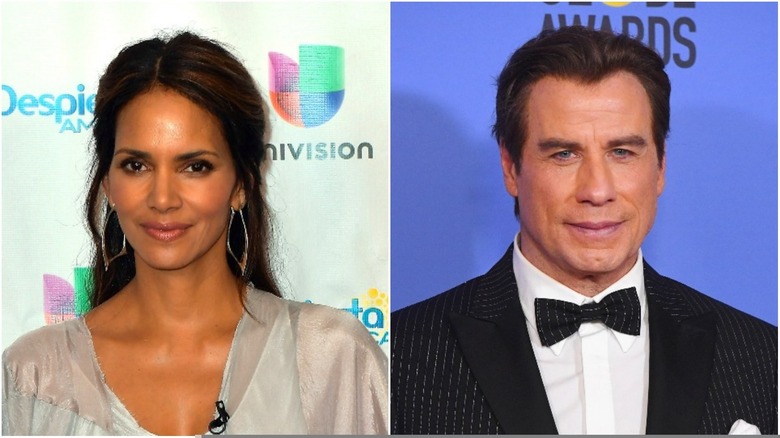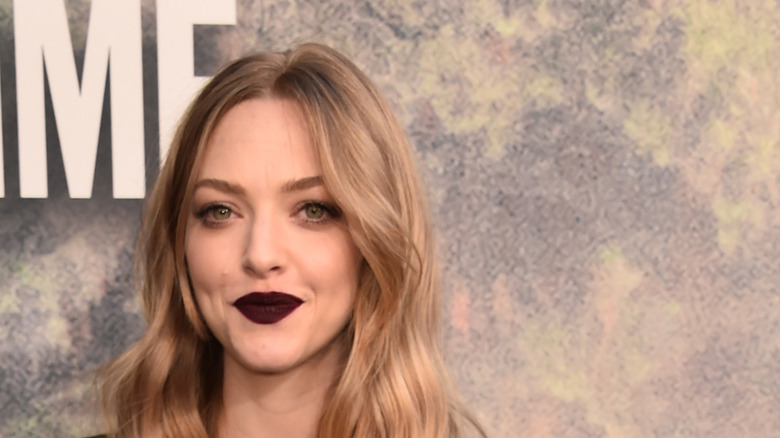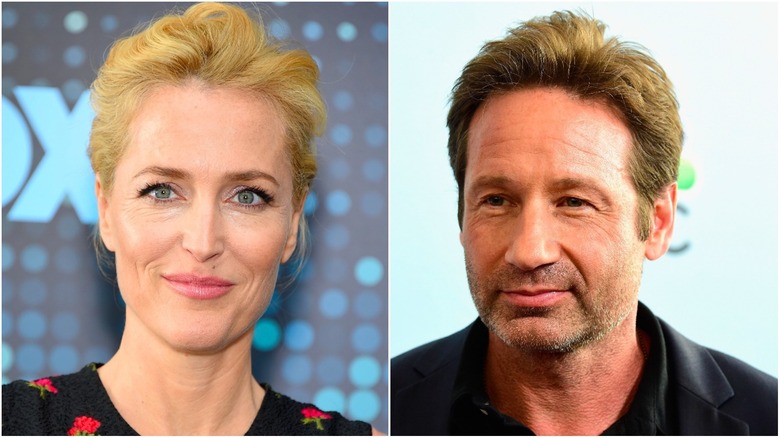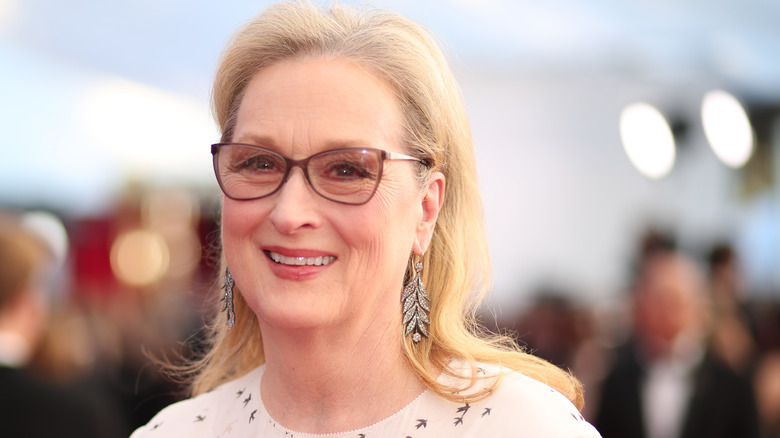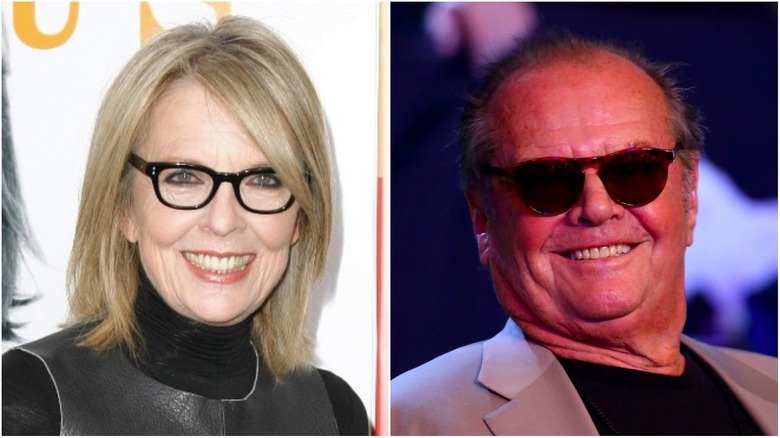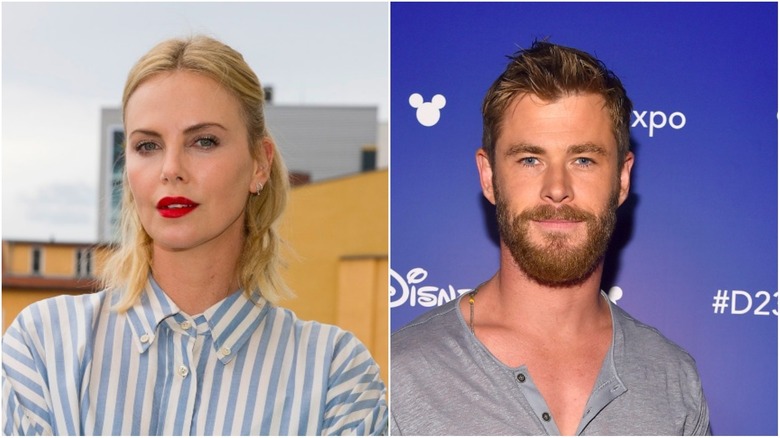Actresses Who Didn't Get Paid Enough For Their Roles
No doubt you already know about the striking gender wage gap in the United States today, where according to the Pew Research Center women earned just 83 percent of what men earned in 2015 for equal, full-time work. And for women of color, the statistics are even worse. And it's been no secret in the news over recent years that, even though we might assume the most privileged among us wouldn't be affected, even the glamorous leading ladies of Hollywood big business are not immune to the worldwide phenomenon of unequal pay for equal work.
In order to highlight the pervasiveness of this sexist holdover practice within the film industry, and many others, I compiled a list of A-list actresses who, despite their massive success and history of bringing in ticket sales, were still compensated with just a fraction of what their male counterparts were paid.
Natalie Portman vs. Ashton Kutcher
Recall for a moment the grace, poise, talent, brilliance, humor, and Oscar-winning resume of actress, Natalie Portman. And then... think of Ashton Kutcher. Sorry, Dude Where's My Car? fans, I agree that he is awesome! It's just that yes, Kutcher is funny and cute and talented and pulls big box office numbers, but would you think he deserved to be paid more than the great Natalie Portman for their 2011 romantic comedy, No Strings Attached? No? How about three times as much? Who would think that's fair?
Portman told Marie Claire that she was aware of the 300 percent difference, saying "I wasn't as pissed as I should have been. I mean, we get paid a lot, so it's hard to complain, but the disparity is crazy." Not even Kutcher agreed with the imbalance. After Portman revealed the humongous difference in their compensation in a recent interview with Marie Claire, Kutcher took to his verified Twitter account to support Portman's comments against the sexism in Hollywood, saying, "So proud of Natalie and all women who stand up for closing the gender pay gap!"
Jennifer Lawrence vs. Bradley Cooper
Even Jennifer Lawrence, the universally adored Academy Award winner, who was until recently "the highest-paid actress in the world," is a victim of the wage gap, even at the peak of her career. Back in December of 2014, when news of the giant Sony hack broke into headlines, The Daily Beast released an exclusive analysis of leaked email exchanges involving information showing that Lawrence's salary when working for Sony Pictures was notably less than her her male counterparts for the same film (American Hustle).
The male headliners, Bradley Cooper, Christian Bale, and Jeremy Renner, all received a nine percent cut of profits, while Lawrence was originally set to receive only five percent, and then made it up to seven. The other female headliner, Amy Adams, also only received a seven percent cut, so this one's a "two-fer." Lawrence wrote about the inequality in a widely read essay for Lenny Letter, the very cool feminist publication co-founded by Lena Dunham, titled "Why Do I Make Less Than My Male Co‑Stars?"
Halle Berry vs. John Travolta
Halle Berry may have come a long way since her co-starring role as "Ginger" in the 2001 crime action thriller movie, Swordfish, along with actor John Travolta. After all, this was just before Berry made history by becoming the first African American woman to win the "best actress" category for her role in Monster's Ball at the 2002 Oscars — and by the way, she is still the only woman of color to have won this title.
Still, Berry was already a household name in 2001, having starred in films like X-Men and Why Do Fools Fall in Love, so does it really make sense that she would earn $15 million less than John Travolta did for Swordfish, as reported by The NY Daily News? Not to mention, this wage gap is calculated even with the $500,000 bonus Berry received for appearing topless.
Amanda Seyfried vs. ...?
You probably know her best for her roles in Tina Fey's Mean Girls (Karen of "the plastics"), the film version of Mama Mia (as Sophie), the oldest daughter in Big Love, and as Cosette in the 2012 film version of Les Miserables. But anywhere you recognize her from, Amanda Seyfried has been active on the acting scene for a long time. So why should she be happy earning less than her male co-stars? Spoiler alert: she isn't.
In 2015, Seyfried opened up to The Times about her dissatisfaction, saying, "A few years ago, on one of my big-budget films, I found I was being paid 10 [percent] of what my male co-star was getting, and we were pretty even in status." She declined to mention names, but as Vanity Fair put it, if you follow the clues and "dig back in Seyfried's surprisingly prolific IMDB credits... there are plenty of possibilities" including Eddie Redmayne in Les Miserables, or Dominic Cooper in Mama Mia.
Seyfried went on to explain that the conversation about the way women are paid less than men is not about money-grubbing, "it's about how fair it is. You have to decide if you're willing to walk away from something, especially as a woman." Her comments really make you think about why it is producers feel comfortable offering women less than men again and again.
Gillian Anderson vs. David Duchovny
While Gillian Anderson has gone on to have an illustrious career on the stage, big screen, and on several hit TV shows, she was a relatively green actress compared to co-star David Duchovny when the cult hit, The X-Files was first being filmed in the early '90s.
As Vanity Fair published, "when the show first began airing in the 90s, Anderson was paid less than Duchovny for several seasons, and was even asked to stand several feet behind him on camera, never side-by-side." According to an interview in The Daily Beast, Anderson did negotiate equal pay by the fourth season, "having become fed up with accepting less than 'equal pay for equal work'," for the remaining original seasons of the show before the much-anticipated six-episode revival in 2016.
You may be thinking, that was the '90s and this is now. That's why perhaps the most shocking news about this wage gap pairing is that Anderson revealed to The Hollywood Reporter that once again, producers tried to offer her half of what co-star Duchovny was offered, for the show's revival event, saying "as usual, they come to me with half of what they want to offer David." Anderson expressed dismay, calling it "sad" that producers would try that trick again in 2016, but fans can rest assured that she did eventually negotiate equal pay for a second time, as The Hollywood Reporter cited "sources" saying "Anderson and Duchovny ultimately took home equal pay for the event series."
Meryl Streep vs. ...?
One of the most acclaimed actresses of all time, and she's still dealing with this sexist crap? Yes, even the great Meryl Streep is affected by the wage gap. "I experience it [sexism] and I become a tiny bit enraged," she said In a 2015 interview with BBC Radio, quoted by The Telegraph.
When interviewers asked if she gets paid less than her male counterparts, she said, "yes," though declined to name names. But the problem manifests itself in more than just the actress' wages. According to Streep, "It is to do with the distribution of films and how they are financed. It's about who is choosing the films that are put out to the multiplexes," she said.
Streep says that although unequal pay was once thought of as only a women's issue, "... because it wasn't seen as [men's] fight," she told BBC Radio. "But increasingly we realize that women's issues are also men's issues and it's our job to right the balance."
Diane Keaton vs. Jack Nicholson
In one more example of even the most seasoned and respected actresses falling victim to the chasm of the Hollywood wage gap, Diane Keaton revealed in her 2012 memoir Then Again that her compensation for her starring role in Something's Gotta Give earned her less than her co-star, Jack Nicholson.
As reported by Variety, "the Oscar-winning actress reveals she didn't get a back-end," (meaning a percentage of the residual earnings) for the comedy, although "... Jack Nicholson did receive one, despite [having] a smaller role." To his credit, however, Entertainment Weekly reported, "When Nicholson heard about the disparity, he wrote Keaton a check from his earnings."
Charlize Theron vs. Chris Hemsworth
Acclaimed actress and Oscar winner Charlize Theron apparently found the wage gap revealed by the Sony hacks so motivating that she made sure to confidently negotiate the same pay (supposedly over ten million dollars) as her co-star, Chris Hemsworth, in The Huntsman, which did not happen in the first film of the series, Snow White and the Huntsman.
Theron told Elle UK, "I have to give [the producers] credit because once I asked, they said yes. They did not fight it. And maybe that's the message: That we just need to put our foot down... girls need to know that being a feminist is a good thing," she explained. "It doesn't mean that you hate men. It means equal rights. If you're doing the same job, you should be compensated and treated in the same way."
Something's gotta give
Yes, some people may make the argument that there are bigger problems to worry about than how many millions already rich actresses may be taking home in their paychecks. But that argument is really beside the point. We're not arguing over how much celebrities should earn in general, we're talking about unfair discrepancies between how much male actors are paid and how much female actresses are paid. And the apt question raised by Jennifer Lawrence's essay remains: why are female actresses overall being paid less than their male counterparts?
The answer is open-ended and based upon years of habit, latent sexism, and many other variables. A recent New York Times analysis of the lack of diversity in positions of power in the United States cited here in The Huffington Post, found that "80 percent of executives who choose which movies are being made in Hollywood are men." In the end, one wonders if there were more female film executives working in the industry if the numbers would equalize faster? Here's hoping we get to find out.
